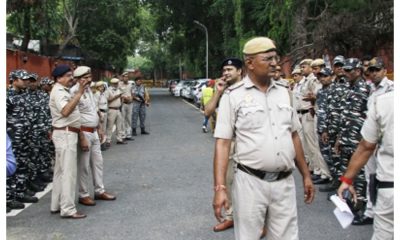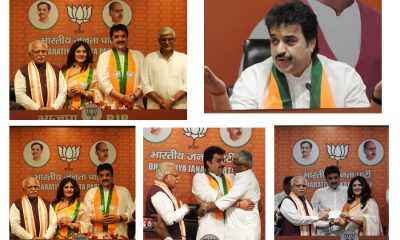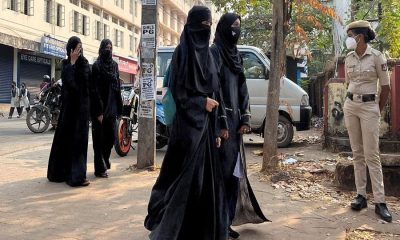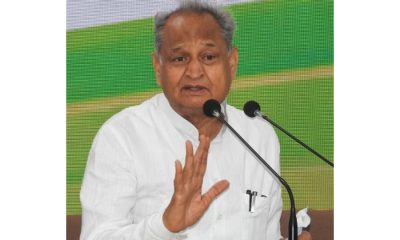National News
How the ‘revadi culture’ label has turned a fiscal debate into a political slugfest
‘Revadi culture’ or freebies by political parties to woo the electorate has triggered a major political controversy in the country.
The raging debate on ‘revadi’, (a sweet often distributed during festivals) was kicked off after Prime Minister Narendra Modi used it as a metaphor for freebies promised by political parties to grab power.
Sri Lanka’s economy hitting the rock bottom, has set off alarm bells for several developing countries. The Indian government has, however, ruled out the possibility of a Sri Lanka-like situation in the country, but advised the states to introspect their respective economic situation.
On July 19, in an all-party meeting during the Monsoon session of Parliament, the Centre had warned about the state-wise debt and the expenditure being incurred by them. Several leaders of regional parties present in the meeting had objected to the Central government raising the issue.
However, a few days before this meeting, on July 12, Modi ignited a political debate on freebies while addressing a rally in Deoghar, Jharkhand, after inaugurating and laying the foundation stone of various development projects worth more than Rs 16,800 crore.
In Deoghar, Modi had said that people should stay away from the ideology behind shortcut politics as it can cripple the state’s economy and harm the country.
He added that it is very easy to get votes from the people by making populist promises while adopting short-cuts. Those who adopt short-cuts do not have to work hard nor do they think about the far-reaching consequences it can cause to the country.
But the truth is that the country whose politics is based on short-cuts, is sure to collapse one day. Short-cut politics destroys the country. Citing the example of how electricity is a necessity, Modi said that today one cannot think of a life without electricity.
“Without electricity, we will not be able to charge our mobile phones, watch TV, or get water. There will be no choice but to light a lamp or lantern during evenings. If there is no electricity, tomorrow all the factories will permanently shut down. But this electricity cannot be generated by short-cut. To generate this electricity, power plants have to be set up and thousands of crores of rupees have to be invested,” the Prime Minister said.
On July 16, at the inauguration of the Bundelkhand Expressway in Jalaun, Uttar Pradesh, Modi once again targetted the freebies culture and said that there is a challenge before the new India which if not taken care of now, will destroy the future of youth in the country. That’s why it’s important to remain alert of the danger of freebies culture. “Nowadays, every effort is being made in our country to promote the culture of getting votes by distributing free ‘revadi’ (freebies).”
Political leaders who promote it will never build new expressways, airports or defence corridors. Those promoting the culture feel that they can buy people’s trust by distributing free ‘revadis’ to them. The people have to unite together to defeat this mindset from the political discourse of the country.
Apparently, the Prime Minister was taking a dig at the Aam Aadmi Party (AAP) leaders for promising free electricity in every upcoming poll-bound state after forming the government in Delhi and Punjab.
Responding to the allegations, Delhi Chief Minister Arvind Kejriwal slammed the Centre for “mismanaging’ the country economy. Kejriwal said that the welfare schemes provided by the AAP government cannot be “freebies”.
Condemning the Prime Minister’s statement calling the welfare schemes of the Delhi government as freebies, Kejriwal said that free education and health services cannot be called freebies.
In retaliation, BJP spokesperson Sambit Patra accused Kejriwal of deceiving people by offering them freebies to fulfill his poll ambitions and win elections.
The benefit of the Centre-launched welfare schemes is being directly provided to the poor sections of society, while Kejriwal, who pretends to work for the people, is busy giving freebies just to win elections, he alleged.
However, not only AAP, but the TRS government in Telangana and the DMK government in Tamil Nadu have also objected to the Central government’s claims and strongly criticised the BJP government.
The issue has become more political than being viewed from the prism of the economic state of the country. Therefore, political rhetoric is bound to hog the limelight in the coming days as well.
Crime
A powerful explosion near Delhi’s Red Fort… High alert across Delhi after the blast; 8 people killed; forensic team arrives at the scene.

New Delhi: A car explosion near Gate No. 1 of the Red Fort Metro Station on Monday evening caused widespread panic. The force of the blast was so intense that a part of the car landed on the Lal Mandir, located near the Red Fort. The temple’s glass shattered, and doors and windows of several nearby shops were damaged. Several people were reported injured in the incident.
Immediately after the blast, fires were reported in nearby shops. Tremors were felt as far as the Bhagirath Palace area of Chandni Chowk, and shopkeepers were seen calling each other to inquire about the situation. Several buses and other vehicles were also reported to have caught fire.
The fire department received a call about the car explosion in the evening. Following this, it immediately dispatched six ambulances and seven fire tenders to the scene. Relief and rescue operations are underway, and efforts are underway to control the fire.
The cause of the explosion is still unknown. Police have cordoned off the area, and investigating agencies are gathering evidence at the scene. Initial reports suggest the explosion occurred in a car, but its nature and cause are still unclear. Security has been increased throughout the Red Fort and Chandni Chowk areas following the incident.
National News
Maharashtra CM Devendra Fadnavis Orders World-Class Facilities, AI-Based Security At Jyotirlinga Temples
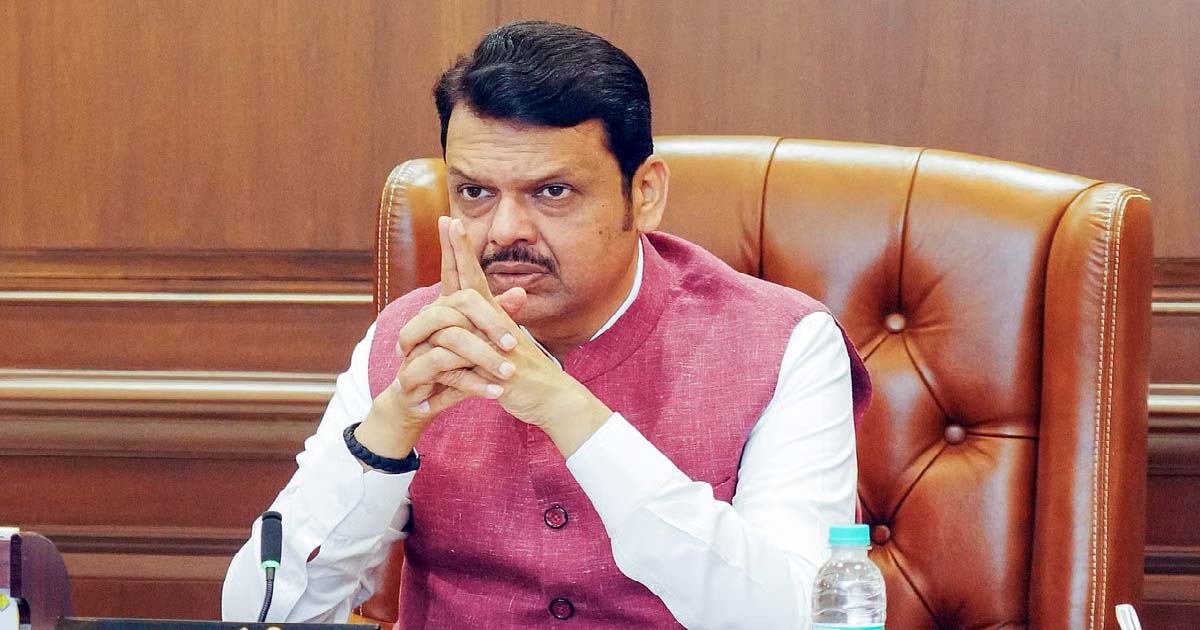
Mumbai: Maharashtra Chief Minister Devendra Fadnavis on Monday directed officials to ensure world-class facilities and a state-of-the-art integrated AI-based security system for devotees visiting Jyotirlinga shrines in the state.
During a meeting held at Varsha, his official residence, Fadnavis reviewed the development plans for the Bhimashankar Temple in Pune district, Aundha Nagnath Temple in Hingoli, and Grishneshwar Temple in Chhatrapati Sambhajinagar.
“Jyotirlinga temples attract a large number of devotees throughout the year. Therefore, the development plans should be comprehensive and focused on creating excellent facilities and ensuring security,” he said.
The chief minister instructed officials to accelerate ongoing works and plan new ones effectively.
“An advanced, AI-based integrated security system should be developed to safeguard devotees and provide an immediate response during emergencies,” he said.
Fadnavis further said that facilities such as waiting halls, drinking water, accommodation, internal roads, cleanliness measures, information boards, tourist facilitation centres, parking management, emergency response systems, health facilities and eateries should be strengthened.
He emphasised that temple managements follow strict norms and residents and administrative bodies should be involved in planning and execution.
“Tourism projects that promote environmental conservation and local employment must be implemented quickly,” he said.
The chief minister said that the development plans presented at the meeting will receive funding after approval by a high-level committee, and he asked officials to organise a separate meeting with the Central government to secure clearances from the Archaeological Survey of India (ASI).
Crime
Thane: Man Stabbed To Death In Dombivali Hotel After Minor Altercation

Thane: A man was stabbed to death in Dombivali in Thane district during an altercation after he accidentally brushed against another person, a police official said on Monday.
The incident took place in a hotel in the early hours of Sunday in MIDC Phase 1 area, the Manpada police station official said.
“Akash Bhanu Singh (38) and his friends were having dinner at the hotel when he accidentally brushed against the accused, who picked up a fight. He along with some others stabbed Singh to death. Two of Singh’s friends, who tried to save him, also sustained injuries and have been hospitalised,” the official said.
Four persons were booked under Bharatiya Nyaya Sanhita sections for murder and other offences, though no arrest has been made, he said.
-

 Crime3 years ago
Crime3 years agoClass 10 student jumps to death in Jaipur
-

 Maharashtra1 year ago
Maharashtra1 year agoMumbai Local Train Update: Central Railway’s New Timetable Comes Into Effect; Check Full List Of Revised Timings & Stations
-

 Maharashtra1 year ago
Maharashtra1 year agoMumbai To Go Toll-Free Tonight! Maharashtra Govt Announces Complete Toll Waiver For Light Motor Vehicles At All 5 Entry Points Of City
-

 Maharashtra1 year ago
Maharashtra1 year agoFalse photo of Imtiaz Jaleel’s rally, exposing the fooling conspiracy
-

 National News1 year ago
National News1 year agoMinistry of Railways rolls out Special Drive 4.0 with focus on digitisation, cleanliness, inclusiveness and grievance redressal
-

 Maharashtra12 months ago
Maharashtra12 months agoMaharashtra Elections 2024: Mumbai Metro & BEST Services Extended Till Midnight On Voting Day
-

 National News1 year ago
National News1 year agoJ&K: 4 Jawans Killed, 28 Injured After Bus Carrying BSF Personnel For Poll Duty Falls Into Gorge In Budgam; Terrifying Visuals Surface
-

 Crime1 year ago
Crime1 year agoBaba Siddique Murder: Mumbai Police Unable To Get Lawrence Bishnoi Custody Due To Home Ministry Order, Says Report



